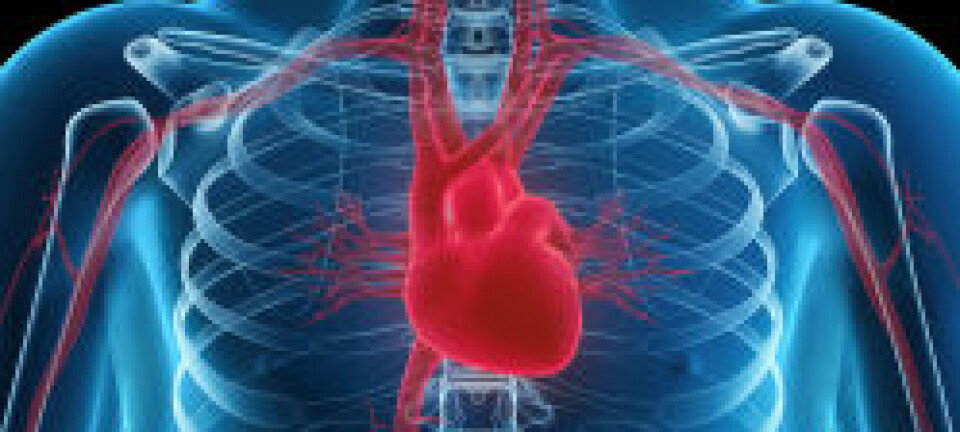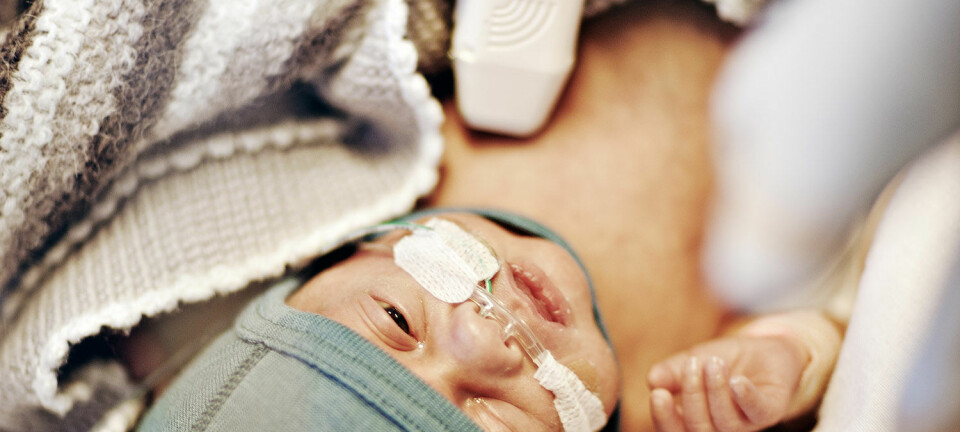
High coffee consumption will not hurt you
Scientists find no link between irregular heartbeats and coffee consumption--even if you drink six cups a day.
We may try to watch our coffee consumption and even try to cut down, but science is increasingly finding no evidence of any harmful effects that coffee may have on our health--besides its ability to stain our teeth.
On the contrary, coffee may have more beneficial than negative side effects.
In a new study looking at the associated risk of a certain type of irregular heartbeat, known as atrial fibrillation, health researchers found no evidence of an increased risk of the condition with increased coffee consumption.
“We couldn't see any increased risk of suffering this irregular heartbeat, even with relatively high consumption of coffee, which would be around six cups a day,” says lead-author Susanna Larsson, associate professor in epidemiology at the Institute of Environmental Medicine, Karolinska Institutet, Sweden.
“The message is to enjoy coffee and drink it in moderation,” says Larsson.
The results are published in the open-access scientific journal BMC Medicine.
More good news for coffee drinkers
These are just some of the latest findings to support moderate coffee drinking, which Larsson suggests is still around three cups a day, based on previous research.
“In general, we see coffee is associated with a lower risk of type-2 diabetes, having a stroke, or contracting coronary heart disease. So overall, it seems that coffee has more benefits for us than bad side-effects,” says Larsson.
“In fact I don’t know of any disease or condition that's specifically associated with coffee,” she says.
A large Swedish Study
In the study, a large group of Swedish volunteers filled out questionnaires about their coffee drinking habits.
“About 40,000 men and 35,000 women completed a questionnaire about their coffee consumption in 1997 and we followed their progress for 12 years. None of them had the irregular heartbeat condition at the start of the study,” says Larsson.
“During the 12 years some of them developed the condition and so we compared the risk between this and high to low coffee consumption, and we found that there was no association between them,” she says.
Larsson and her team also looked at an additional 10,000 cases from previously published studies looking at the same risk associated with coffee and atrial fibrillation.
“None of these studies found that high coffee consumption was associated with an increased risk of atrial fibrillation,” says Larsson.
Questions remain
Kjeld Hermansen, clinical associate professor from the Department of Clinical Medicine at Aarhus University, Denmark, has read the new study. He suggests that the lack of association between caffeine intake and atrial fibrillation is now rather well documented, and this study agrees with previous research on the topic.
But for Hermansen, who was not involved in the new research, it does not significantly advance our understanding on the health effects of caffeine in particular.
“Unfortunately, no information is provided in the present study on what kind of coffee was consumed [by the participants],” writes Hermansen in an email to ScienceNordic. He would have liked to know whether any distinction was made between caffeinated or decaffeinated coffee in the new study.
Larsson does not consider this a major limitation as she suggests that decaffeinated coffee consumption in Sweden is so low that the results almost certainly reflect caffeinated coffee consumption.
You can read more about the health impacts of coffee and specifically of caffeine here.
Could men and women react differently to coffee?
According to Larsson, there were some suggestions of a difference between men and women. Men, it seems, may have a slightly elevated risk of the irregular heartbeat with increased coffee consumption, while the risk in women could actually be reduced if they drink more coffee.
“We do see a possible suggestion of a positive association in men and the reverse in women, but none of these were statistically significant so we really can’t say anything about it yet. This is something we plan to look at in more detail next with a bigger cohort of participants,” she says.









